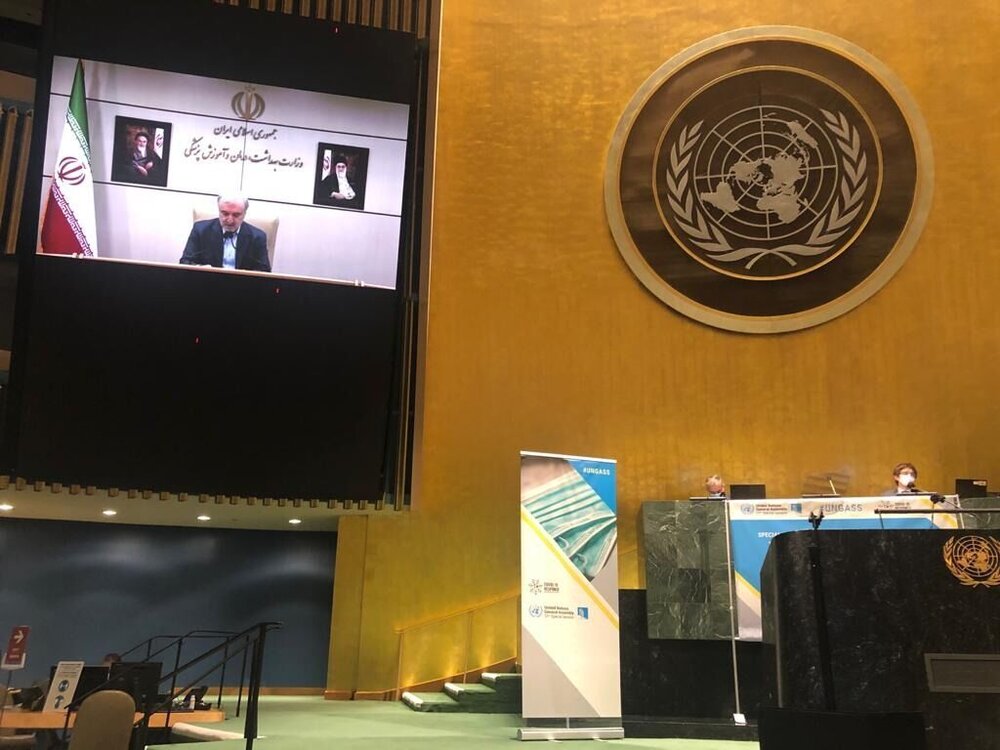Healthcare coverage for millions of refugees
Despite sanctions, Iran provides 3.5m immigrants with testing and treatment services

TEHRAN – Health Minister Saeed Namaki has said that the country has implemented testing and treatment coverage programs for 3.5 million legal and illegal Afghan immigrants despite all restrictions due to unlawful and unilateral sanctions.
“The Government, despite all restrictions due to unlawful and unilateral sanctions, has provided special financial packages for the poor and marginalized population; has done economic support measures especially for small businesses, and implemented testing and treatment coverage programs for 3.5 million legal and illegal Afghan immigrants.
We have taken additional environmental health measures at our borders with neighboring countries according to IHR-2005, which requires substantial support by Member States to maintain normal trade," Namaki explained in an address to the high-level special session of the United Nations General Assembly, Response to COVID-19 Pandemic, held in New York December 3-4, 2020.
Our strong PHC Network was not only the core of three rounds of screening through Electronic Health Records, but we managed to sustain Essential Health Services to ensure maternal and child care, immunization, Tuberculosis and HIV case management are provided, and, as a pioneer in NCDs management, to continue health services for chronic patients and mitigating risk factors.
He also said that the COVID-19 pandemic swept the world severely, providing many lessons to be learned nationally, regionally, and globally, which demonstrated the unpreparedness of the global community to deal with a Pandemic. Global preparedness and emergency response must be at the forefront of the agenda of governments and international agencies for decades to come.
“Leadership, solidarity, inter-sectoral collaboration, evidence-based interventions, and coordination between countries are the tools needed to manage the COVID-19 pandemic. In addition, we need to strengthen the IT infrastructure to provide more reliable data, telemedicine, and tele-education in the new era.”
“I would like to emphasize the vital importance of global solidarity and international cooperation, with full support to the WHO, as the unique platform for global health activities, to overcome this pandemic. Timely, cost-effective, and equitable access of all nations to diagnostic, medical equipment, medicines, and vaccines are crucial, with no discrimination, sanction or unjustifiable prioritization."
Namaki added: "The unilateral coercive measures imposed by the government of the United States have negatively affected the process of combating the pandemic in my country. Unilateral illegal measures hamper easy access of the people to basic medical items and requirements and thus endangers the health of the Iranian citizens. Medicines supply and health commodities have been targeted through tight restrictions of foreign exchange resources even for these humanitarian issues.”
“This pandemic reminds us how much we need integrity, solidarity, and collaboration, at local, regional, and global levels. While we are committed to the UNGA resolutions and political declarations on UHC, NCDs, and communicable diseases such as TB, there is a need to re-visit the targets, financing, and approaches as a response to the pandemic, which hit the health infra-structures, health workforce, and the economies.”
“I call upon international financial organizations to provide substantial financial supports to the Member States regardless of political impediments,” he concluded.
Free medical services for foreign nationals
In August, Deputy Health Minister Shahnam Arshi said all foreign nationals infected with coronavirus receive medical treatment free of charge in Iran.
So far, at least 4 trillion rials (nearly $95 million at the official rate of 42,000 rials) have been spent only for the treatment of registered foreign nationals, Arshi stated.
He went on to say that all health care services for refugees in Iran are free of charge and are also covered by the UNHCR.
Iran is host to one of the largest and most protracted urban refugee situations in the world and has provided asylum to refugees for four decades.
The latest official government statistics in 2014, there are 951,142 Afghan refugees and 28,268 Iraqi refugees living in Iran. Many of the refugees living in Iran are the second and third generation, according to the United Nations High Commissioner for Refugees (UNHCR).
About 97 percent of refugees live in urban and semi-urban areas, while 3 percent are residing in 20 refugee resorts run by the UNHCR's main government counterpart.
In addition to Afghan refugees, there are about 2.5 million Afghans living in Iran, including those having a passport and undocumented Afghans. 450,000 Afghan who did not have identity cards or birth certificates have received Iranian visas that allow them to live, work or study in the country.
